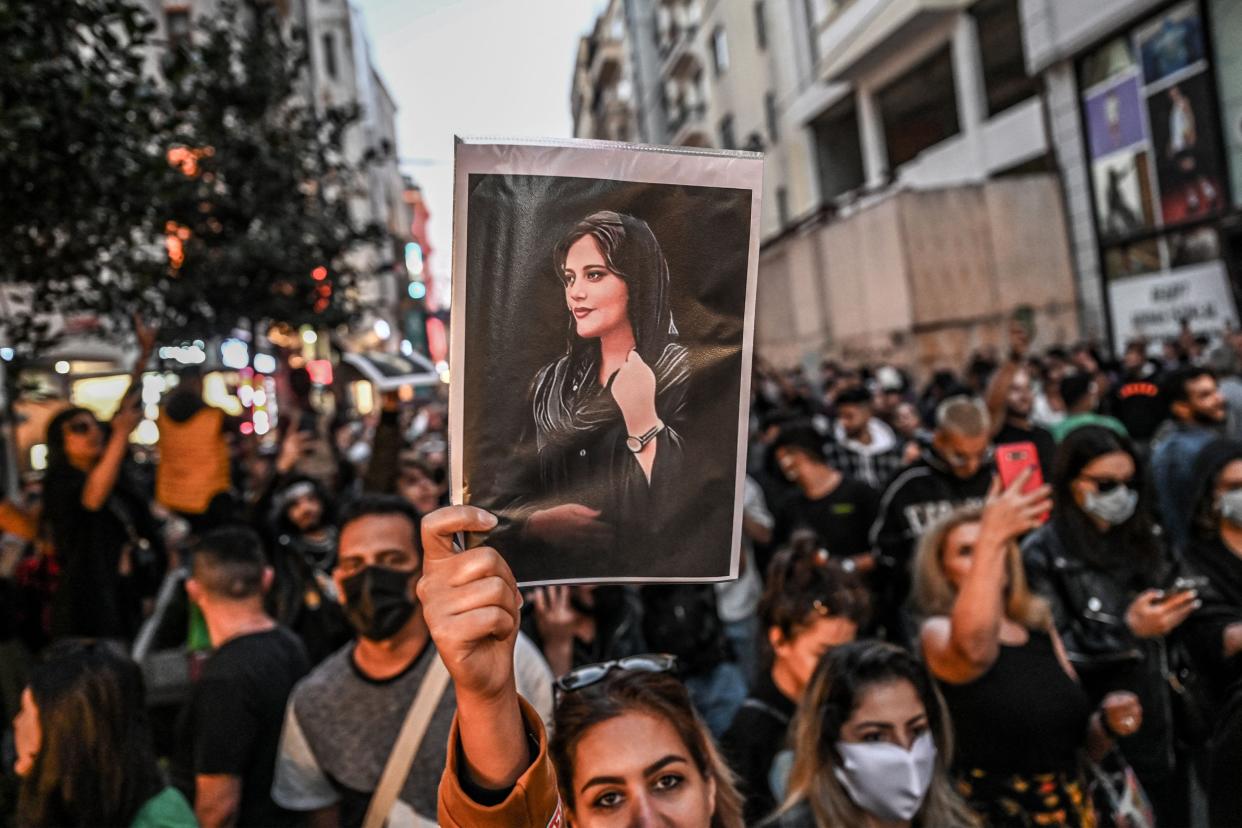Why the women of Iran will win

There are times in life when we find ourselves in the slipstream of a moment; one on which history pivots.
For two weeks now, women in Iran have risked everything to protest the murder of Mahsa Amini, a 22-year-old Kurdish Iranian who was arrested, then beaten to death by the government's morality police for not wearing her hijab properly.
The zealots and graybeards running Iran don't yet know it, but they're cooked.
When people are willing to give up everything, even die for a righteous cause, they can't be defeated.
World reacts to Iran protests:How the world is protesting Iran over Mahsa Amini's death and women's rights
For Westerners, it's hard for us to wrap our minds around what it might be like to live under a theocracy. In our thinking, how does someone's attire rise to a crime? Why can't people just mind their own business?
That Iran has to employ police to enforce its version of Islam tells you all you need to know about it.
The imposition of religion as someone else defines it doesn't work.
The protests roiling that country are a reminder that faith ― and the very human desire to be free ― can't be codified.
From the Spanish Inquisition to book-banning, history has shown us and keeps showing us that the imposition of religion as someone else defines it doesn't work.
Though the Koran urges both men and women to dress modestly, there's nothing compulsory about a woman wearing a hijab. There is contention in some circles that the purpose of requiring a hijab is to protect a woman's virtue. Why aren't restrictions imposed on men who apparently can't resist harassing and disrespecting women they don't know?
The ongoing protests prove yet again that the problem with fanatics is they always go too far. Amini's needless death has lit a spark, feeding what was already a simmering cauldron of resentment among young Iranians who've long had access to social media, and know how the other half of the world lives.
Here in the U.S., there's a push to establish Christianity as America's "official" religion; a proposal that President Abraham Lincoln rejected more than 150 years ago.
It violates the First Amendment, created in direct response to the founders' strong resistance to the idea of a state religion, which left Europe bloody and war-torn.
It goes against our two foundational documents, the Declaration of Independence and the Constitution, neither of which mentions Jesus.
Finally, which sect of Christianity would be selected as the "official" embodiment of the faith?
No one can be forced to embrace faith, not even at gunpoint.
Americans who still think a theocracy might not be such a bad idea argue that the country was better off before the Supreme Court removed prayer from public schools in 1962.
The Black Christians who were trying to vote in 1962, and whose churches were bombed or burned to the ground would probably beg to differ.
Remembrances and what actually happened are not always one and the same.
No one can be forced to embrace faith, not even at gunpoint. For Christians, the mistake is in always forgetting that their faith isn't a religion, it's a relationship.
The women of Iran are showing us, showing the world, what it sometimes requires to be free. Too often, we are content to doze in the lap of ambivalence. Here in the U.S., we have an important election next month that could determine our own futures as women and as citizens.
There's no point in cheering on the Iranians if we neglect our own freedoms by not taking part in our unique process of self-determination.
Government officials in Iran have threatened to inflict severe punishment on those who insist on protesting against their edicts.
The women who have taken to the streets there don't care if they die.
That means they'll win.
Charita M. Goshay is a Canton Repository staff writer and member of the editorial board. Reach her at 330-580-8313 or charita.goshay@cantonrep.com. On Twitter: @cgoshayREP
This article originally appeared on The Repository: Charita Goshay: Why the women of Iran will win

